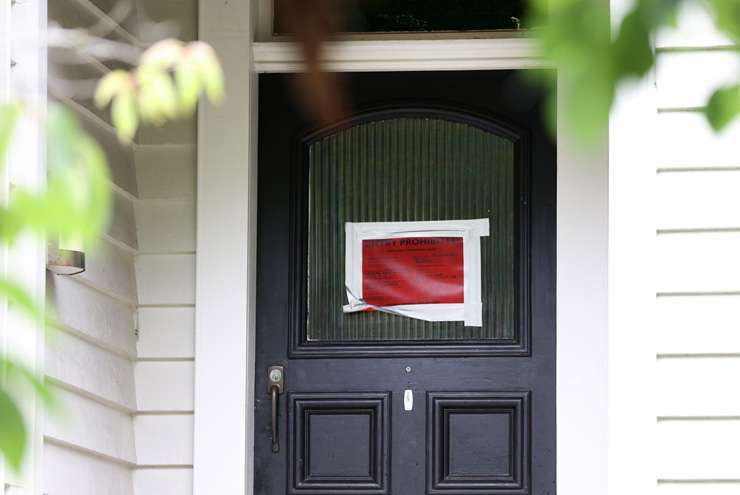Vendors caught up in Auckland’s floods should disclose any damage to properties to their agent and pull back from the market for a while if they need to.
That’s the advice from Scott Larsen, business owner of Harcourts Titirangi, whose suburb has seen much flood damage including slips and red-stickered homes.
If properties have not been damaged, sellers should tell their agent that, as well, because buyers will be asking.
For undamaged properties it will likely be business as usual in terms of the marketing campaign – but trying to hide damage by tidying it up and drying the property out leaves owners open to future liability claims, Larsen says.
Start your property search
“If they try and hide it, they’re potentially asking for trouble later on.”
Once sellers with minor damage have disclosed that, they should get the house as well presented as they can, even if that means taking it off the market for a few weeks.
“The main thing for me in times like this is if you need to take it off the market, do it. If you need to stop having open homes for a couple of weeks to get things right, do that as well. Maybe just cancel viewings until you're ready to come back again.
Read More:
- Auckland flood damage: What are your legal rights?
- What happens if your home gets hit with a red sticker? Is it all over?
- Mega-millions at risk: Some of Auckland’s most expensive homes are teetering on the edge
“There's nothing worse than opening a house up and it's damp and smelly.”
The Auckland floods are presenting a learning curve for agents around some of the legalities and people selling damaged properties should talk to their lawyer, he says.
But agents should be asking all vendors if they experienced damage, be it water damage, land movement or other damage.
Photos are always useful in terms of evidence of any impact, or lack of, and if people are getting tradespeople in they should get invoices for work done and keep them on record, he says.
Larsen thinks homes with an insurance claim on them can still sell, as long as everything to do with the claim is fully disclosed.

A Remuera house sports a red sticker, prohibiting entry. Photo / Getty Images
“So long as everything is up-front, so long as everything about that claim is disclosed and the purchaser knows what they're buying and they're aware of what the claim was about, yeah, of course, and they've had time to seek their own advice, a builder or a plumber or a solicitor.”
Anyone who is caught in the middle of having signed a sale and purchase agreement but who is yet to settle should also talk to their solicitor, he says.
“If you've gone unconditional and you haven't yet settled and your house is water damaged, what do you do? Talk to your lawyer.”
Steve Koerber, an agent for Ray White Remuera, told his soon-to-list clients to take time-stamped photos to show proof there was no damage.
He also says people without damage can go ahead as planned and probably also those with minor damage, such as water in the garage.
“It’s a fairly common occurrence anyway across Auckland and we do have checklists.
“When we list a property we ask people have they had any water here there and everywhere and so people have to disclose.”
Vendors who do have flood issues to disclose should be aware they are not going to be the only ones – “about a quarter of the properties they are on the market with are going to be the same.”
The best procedure for people with damage is to put in place any remedy, if there is one, to stop it happening next time.
“If I was selling my own home, that's what I would do. I would get the drainage pumped out, I would maybe relocate a drain, just get things done properly to show the buyers what you've done.”
He thinks buyers will understand many properties were affected and if the damage was only minor that might be a positive.
“If that's the worst that it was ever going to get, and it would seem likely, at least they know that the house has survived and they can probably enjoy 20 to 30 to 50 years in that property with the unlikely event it was going to flood again.”

Safe and dry: 92 Abbotts Way, in Remuera, Auckland, is on the market for sale. Photo / Supplied
Others, though, will need to spend some money on their property, he thinks, with people who live on or near clifftops and hillsides likely to experience some kickback from buyers.
Those owners should do the best they can to prove they have a sound property: “Get a geotechnical report and have that with your marketing. Write about the depth of the piles that you've installed and if the piles that you have installed aren't deep enough, well, get deeper ones.”
Koerber also points out weather events are unpredictable. He is selling 92 Abbots Way, which he says according to council records is in a “shocking” flood zone but which remained unaffected.
“The amazing thing is that’s the worst floods Auckland’s ever seen and the property was completely safe and dry.”
That included the backyard: “The property was just not impacted whatsoever and I've got photographic evidence of that.”
Koerber expects Auckland’s market could stall a little following the flooding but says it will pick up again.
But because sales numbers are likely to be down as buyers sit on the sidelines and procrastinate, as they tend to after such events, there could be more of an upward swing than there would have been without the flood, he says.
That’s because people will probably all decide to buy at the same time, hence causing a price bump.
James Wilson, head of valuations for OneRoof’s data partner Valocity, agrees taking photos is a simple way to show how affected a property has been, suggesting sellers could even draw a rough map of the house showing where the floodwaters came to.
“What that's going to do is allow you to show people this as what the impact was. It's not guaranteed it won't get worse in the future but documenting what you've seen around you is important and you could provide that to an agent, to future buyers.”
Other things sellers can do is show the property is fully consented, or that it’s not built across a floodplain, but Wilson says people should be wary of downplaying or overstating, that their property was fine but the one next door was not.
“Evidence is going to be the best thing you can gather to help in an immediate sale if you are selling in the immediate term.”

Valocity head of valuations James Wilson says Auckland buyers may be more cautious in the short-term as a result of the floods. Photo / Fiona Goodall
It’s too soon to see any impact on sale prices from the floods but Wilson says markets perform better when there is certainty. “I think we can expect an even more cautious approach amongst many buyers in the short-term.”
Owners of properties in suburbs impacted more than others will probably especially find buyers to be “hyper-focused and concerned” about how the property fared.
“They'll be asking lots of questions, they'll be doing lots of due diligence, probably more so than normal.”
Wilson advises professionals involved, from agents to others, not to comment outside their areas of expertise - “recognize you’re probably not a Geotech engineer or a structural engineer”.
He also says there needs to be a focus on making data and maps more readily available to the market in general.
“I think what we're going to see with an event like this is that buyers and homeowners are going to demand that data be made more available because I think it empowers you. You'd rather know about a potential heightened risk or hazard than not because incidents like this drive home the importance of that.”
But as the days, weeks and months roll by the visual damage in a locality fades and the sun comes out again, as do buyers, he says.
Neville Scott, the CEO of the New Zealand Institute of Building Inspectors, says buyers should always get a pre-purchase inspection because if a property has been closed up once it has moisture there’s the potential for mould and other issues.
However, while building inspections are valuable they have limitations as they are “visual only” and structure is usually hidden, while land comes more under geotechnical engineering.
Some inspectors may recommend people get in a specialist to look at some areas which adds to the cost but that may be worth it: “It will not be cheap, but so is $1,000,000 mortgage.”
He says people should do as much research of their own as they can, including looking at council documents and property files.











































































